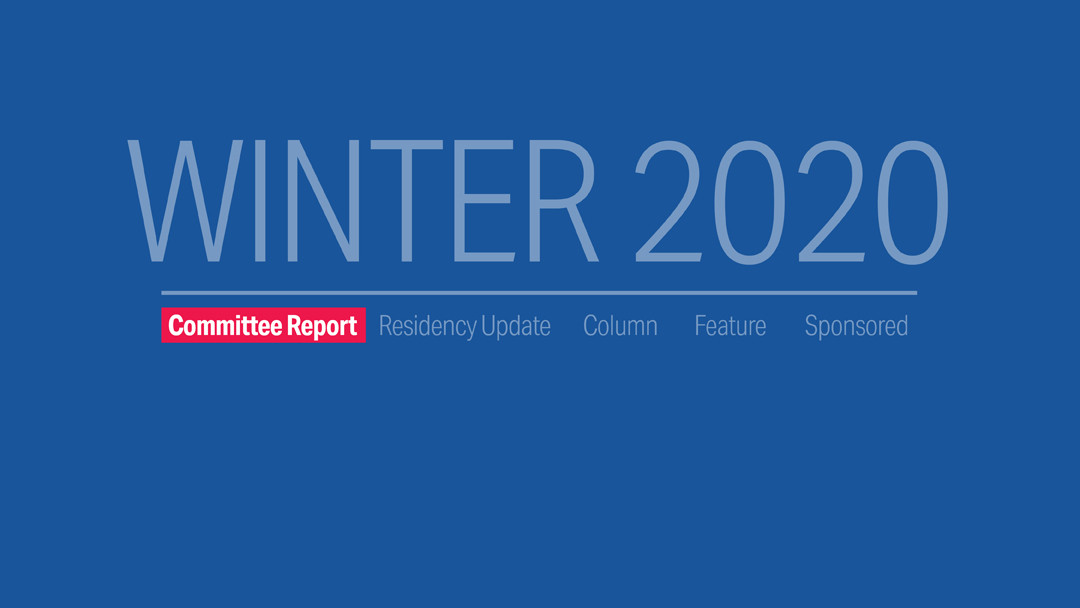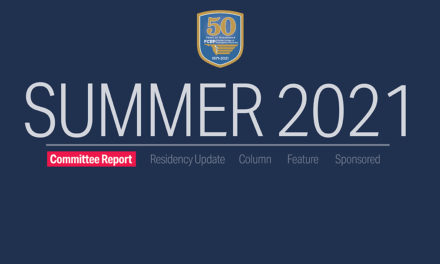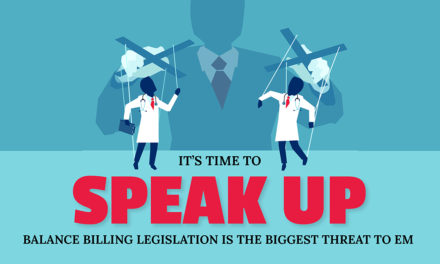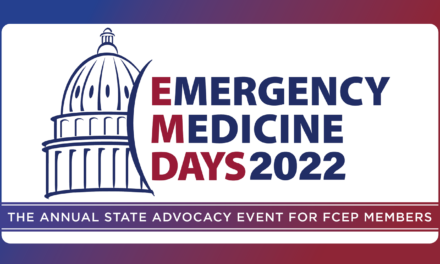Winter 2020: FCEP President’s Message
As emergency physicians, fellows and residents, we are in constant motion. Early on in our training, we are taught to eat when we can, sleep when we can, use the facilities when we can, etc. We are instructed very early on that any downtime should be repurposed for task-oriented activities. During slower times in the emergency departments where we serve our patients, team members around us are taught to spend any time during a lull restocking, checking code carts, organizing supplies, cleaning out workstation drawers, etc.
Beyond constant movement is the concept of multitasking. We rarely eat anywhere other than in front of a computer. We quickly move through EMR mouse clicks between bites while the phone is on speaker, playing easy listening music in the background, indicating we are on hold trying to transfer a patient. One of my beloved colleagues, Dr. Stephen “Blue” Coltharp, recently addressed the complicated nature of multitasking for emergency physicians during a journal club for my physician group based out of Daytona Beach. Incidentally, he has five children and his family likely does more in a day than most others accomplish in a month.
Many of us adopt the mindset of movement and multitasking in such an internal way that our lives outside of work and many of our relationships become a “to do” list. We live in the margins of the activity around us and that which we create. If we aren’t traveling, dealing with the business of running a household, or accomplishing a goal in our personal lives, we struggle with idle time. I bought a t-shirt not long after my first daughter was born that displays the following phrase: “Time Well Wasted.” Sitting with her and holding her while she slept was amazingly gratifying and time well spent, even though I could have laid her in her crib and walked away to do laundry.
There are things that can happen that bring activity to a grinding halt. On November 19, many emergency departments around the country observed a moment of silence in memory of our colleague, Dr. Tamara O’Neal, who was killed in Chicago on that date last year. During the spring of 2019, one of my colleagues from another specialty committed suicide. During the third quarter of 2019, my former neighbor and colleague from another specialty suffered cardiac arrest and passed away at age 59. Two of our pillars of emergency medicine in the state of Florida passed away similarly in the not so distant past.
What if we had moments of stillness, however short in duration, that existed within us and in the emergency departments where we serve our patients? What if there was a few second pause and a deep breath before entering the room of a new patient? What if the few seconds it would take to sit down in the room of a patient was customary, even if only to be perched on the edge of the bed because the patient’s child occupied the spinning stool perceived to be a toy? What if we took a few minutes when grabbing coffee or food to touch the arm of a colleague and truly ask, “How are you?” without expecting the answer to be “fine”?
What is our worth when we are no longer in constant motion? Do we have value to our patients if we can’t diagnose them or cure them? Do we perceive that we have value to our colleagues, our emergency department teams, our communities and our families because of who we are or what we do?
We are not widget makers—we are medicine men, priests, counselors, healers and humans willing to meet others where they are. We have technology and tools to help our fellow man, but in the end our stethoscopes are simply a conduit to have a conversation. When we allow the stillness in, there is an opportunity for connections to take place with those around us who truly matter.
Winter in Florida’s emergency departments is similar to a natural disaster. Between snowbirds who are advanced in age with multiple comorbidities and without local healthcare providers, coupled with outbreaks of influenza and other viruses, our resilience is tested as individuals and teams and our systems are stressed beyond capacity. Please lean in and support your colleagues. In doing so, you will be supported. Embrace the opportunity to find moments of stillness. Those moments will restore the joy and meaning in your work and your relationships.
“Peace. It does not mean to be in a place where there is no noise, trouble or hard work. It means to be in the midst of those things and still be calm in your heart.” -Unknown ■
This article is part of the following sections:






